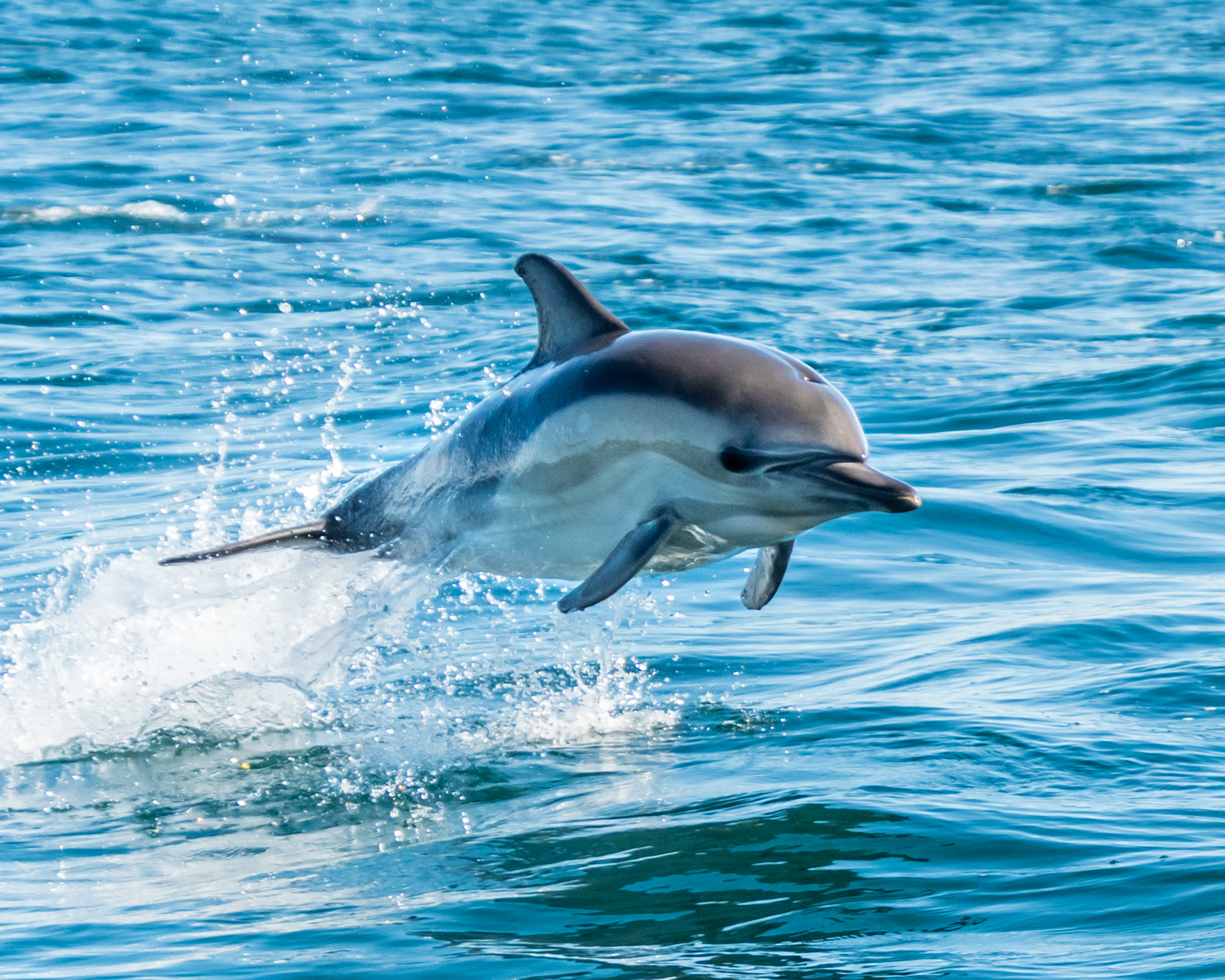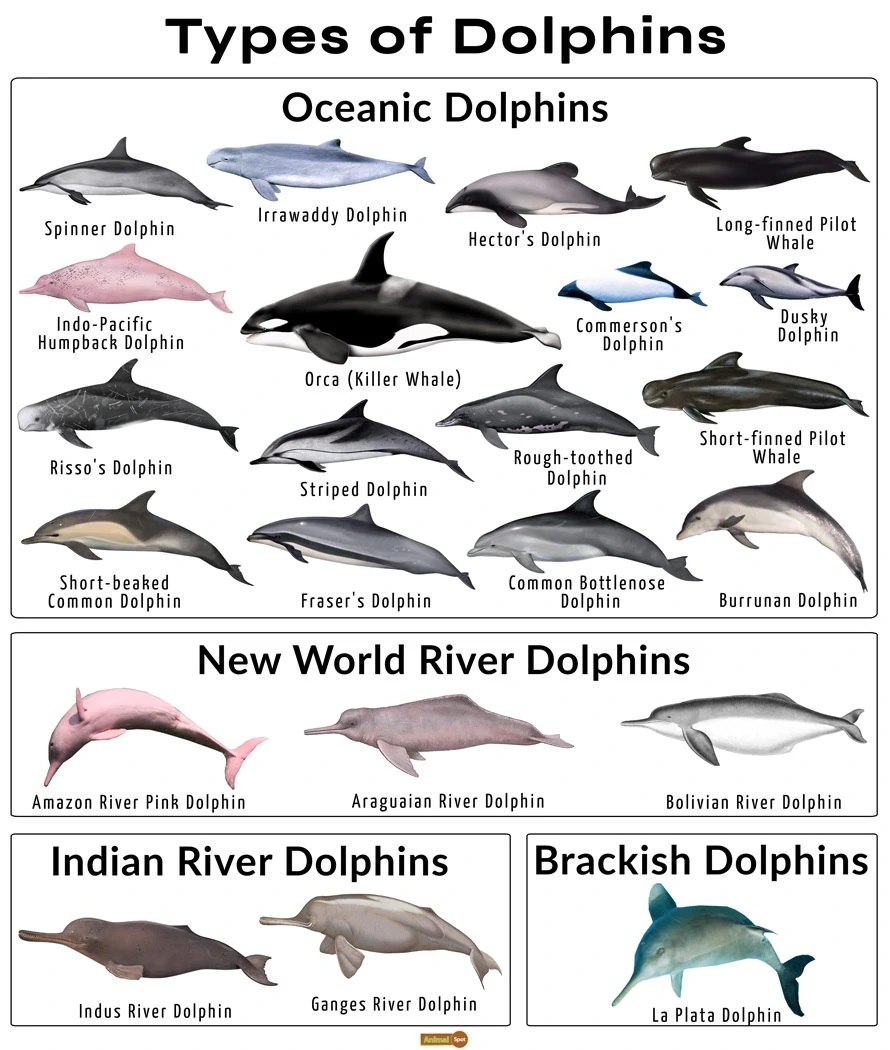Discover Fascinating Dolphin Facts That Will Certainly Impress Your Close Friends
Discover Fascinating Dolphin Facts That Will Certainly Impress Your Close Friends
Blog Article
Study the Sea: Exciting Dolphin Truths for Ocean Lovers
The globe of dolphins provides an interesting junction of knowledge, social behavior, and eco-friendly significance. With around 37 varieties, these marine animals display a series of exceptional attributes that not just captivate sea lovers however also highlight their crucial role in marine ecosystems. From their complicated communication approaches to their outstanding analytical capacities, dolphins challenge our understanding of animal intelligence. The pushing need for conservation initiatives to secure these animals and their environments raises critical concerns about our duty towards the sea's residents. What effects do these factors hold for our interactions with these amazing beings?
Dolphin Types Diversity
Variety is a characteristic of the dolphin household, incorporating a large range of varieties that show distinct physical qualities, habits, and habitats. The family Delphinidae, generally referred to as nautical dolphins, makes up roughly 37 varieties, each adapted to certain environmental niches. The bottlenose dolphin (Tursiops truncatus) is renowned for its intelligence and adaptability, prospering in both open and coastal sea environments.
On the other hand, the whale (Orcinus whale), typically referred to as the killer whale, is the biggest participant of the dolphin family members and is identified by its striking black-and-white coloration. Orcas demonstrate intricate social structures and hunting strategies, showcasing the behavior diversity within the family. Other types, such as the rewriter dolphin (Stenella longirostris), are kept in mind for their acrobatic display screens and choice for warmer waters, highlighting the versatility of dolphins to different aquatic ecosystems.
Furthermore, river dolphins, consisting of the pink river dolphin (Inia geoffrensis), live in freshwater atmospheres, further highlighting the wide-ranging habitats that dolphins inhabit. Dolphin Facts. This extraordinary diversity not just enriches marine ecosystems however likewise highlights the relevance of preservation initiatives to shield these exceptional animals and their atmospheres
Social Habits and Communication
The detailed social behavior and interaction methods of dolphins are crucial parts of their presence, promoting team communication and enhancing survival. These highly intelligent marine creatures exhibit facility social frameworks, frequently creating hulls that can range from a couple of people to over a hundred. Within these teams, dolphins take part in actions such as cooperative hunting, social play, and common security, which foster solid bonds among members.
Dolphins utilize an advanced selection of articulations, consisting of clicks, whistles, and body movement, to convey details and share emotions. Their signature whistles function as one-of-a-kind identifiers, similar to names, enabling individuals to call out to one another. This vocal interaction is enhanced by non-verbal signals, such as jumping, slapping the water, and integrated swimming, which better improves their communications.

Special Feeding Habits
Unique feeding practices characterize dolphins, showcasing their adaptability and intelligence in numerous aquatic environments. These aquatic animals are recognized for their diverse diets, which largely include fish, squid, and crustaceans. Their hunting strategies can vary substantially, commonly tailored to the specific victim and ecological problems.
One notable method is participating searching, where dolphins function in teams to herd institutions of fish into limited formations, making it easier for individuals to capture their meal. This social habits not just boosts their feeding effectiveness but additionally enhances social bonds within the sheath. Additionally, dolphins have actually been observed utilizing a technique called "fish-whacking," where they use their tails to stun or disorient fish, promoting much easier capture.
Another fascinating feeding routine is echolocation, which enables dolphins to identify target also in murky waters. On the whole, the special feeding habits of dolphins highlight their role as competent killers within the aquatic ecological community, demonstrating both knowledge and resourcefulness.
Knowledge and Trouble Addressing
Their knowledge is evident in their problem-solving skills, social interactions, and capability find more information for learning. Research has actually demonstrated that dolphins can use tools, such as utilizing aquatic sponges to shield their rostrums while foraging on the seafloor.
Additionally, dolphins exhibit innovative interaction skills, employing an intricate system of clicks, whistles, and body language. Dolphin Facts. This communication is essential for working with group activities, such as searching and interacting socially, showing their ability to work collectively towards a common goal. Their capability to recognize abstract concepts, including self-recognition in mirrors, further stresses their cognitive class
In regulated studies, dolphins have shown a capability to address challenges and do jobs that call for both memory and essential reasoning. These interactions indicate not just knowledge however likewise a desire to involve with their setting in unique means. Generally, the cognitive expertise of dolphins places them amongst the most intelligent types in the world, promoting a much deeper recognition click for their role in aquatic ecosystems.
Conservation and Environmental Impact
Preservation efforts aimed at shielding aquatic ecological communities are essential for preserving dolphin populaces and their habitats. Dolphins are extremely sensitive to environmental changes, and their survival is elaborately connected to the health of nautical ecosystems. Overfishing, pollution, and climate change position significant risks to both dolphins and their settings.
Overfishing disrupts the food chain, resulting in a decrease in target varieties important for dolphin survival. In addition, pollutants such as plastics and chemicals accumulate in marine environments, threatening dolphins with consumption and bioaccumulation. Raised water temperature levels and sea acidification, consequences of climate change, further threaten the fragile balance of aquatic communities, affecting dolphin breeding and migratory patterns.
By prioritizing conservation initiatives, we can guarantee that future generations enjoy the appeal and vitality of dolphins and the oceans they inhabit. Securing aquatic communities is not just regarding conserving dolphins; it is concerning maintaining the detailed internet of life that maintains us all.
Final Thought
Dolphins exemplify the complexity and splendor of marine life with their varied species, elaborate social frameworks, and official website advanced cognitive capacities. Their unique feeding practices and interaction approaches even more highlight their flexibility and knowledge. As essential parts of marine ecological communities, dolphins underscore the requirement of ongoing conservation efforts to safeguard their habitats. Safeguarding these remarkable animals is important not just for their survival however additionally for keeping the health and balance of sea atmospheres globally.
Other types, such as the rewriter dolphin (Stenella longirostris), are kept in mind for their acrobatic screens and preference for warmer waters, highlighting the versatility of dolphins to different aquatic ecosystems.
Generally, the distinct feeding habits of dolphins highlight their function as proficient predators within the marine environment, showing both knowledge and resourcefulness.
Overall, the cognitive prowess of dolphins puts them amongst the most intelligent varieties on the world, cultivating a much deeper admiration for their function in marine ecological communities.

Report this page